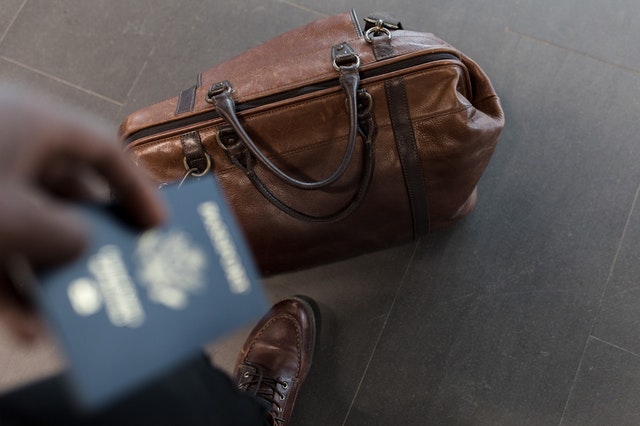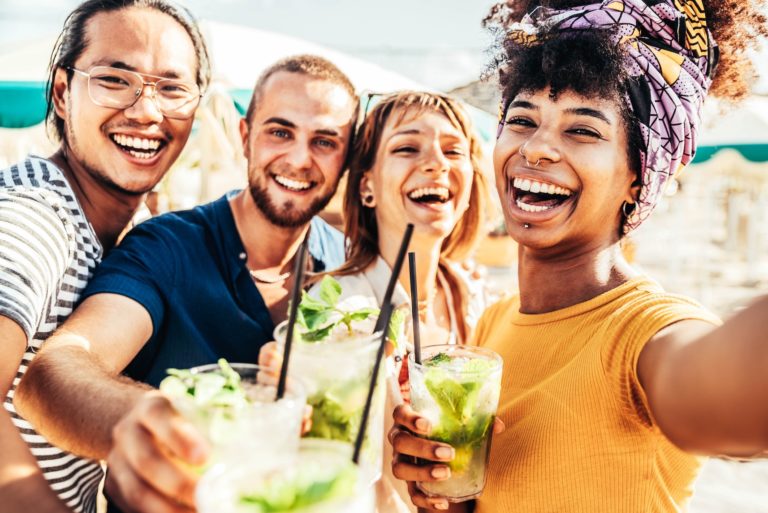Get ready for the ultimate solo adventure of a lifetime! You’ve packed your bags, booked your flights, and set the countdown timer on your phone. The excitement is real, but the pre-travel jitters are setting in, especially when it comes to staying safe. Don’t worry, we’ve got you covered!
Solo travel can be daunting at first, but liberating for the heart. Picture: Getaway gallery
In this article, we’re going to take you on a fun-filled journey and share our top tips and advice for staying safe while exploring the world solo. Pack your sense of adventure and push all fears aside.
Solo travel is a truly magical experience, opening up doors to unforgettable memories and taking you out of your comfort zone to do things you never thought possible. It’s a self-expanding journey, filled with challenges and growth.
And yes, it can be a little intimidating at first, but everything new is! Remember your first day at school or your first driving lesson? Overcoming fear leads to the most valuable experiences. So, don’t let the fear of safety stop you from embarking on this solo travel journey.
Plus, most of the things we fear never actually happen, so why let that stop you from having the time of your life on your solo adventure? Time to conquer the world, one step at a time!
1. Research

First and foremost, it’s time to get to know your destination like the back of your hand. Read up on blogs, watch vlogs, and ask friends and family for their expert advice. Find a cosy accommodation that’s close to local transport and in a safe area. Stay away from sketchy neighbourhoods and check-in times so you won’t have to waste time in areas you’d rather avoid.
Know the going rates for things while you’re out and about, so you don’t get overcharged. And, don’t forget to pack some tech essentials to make your travels even smoother. Download weather apps, public transport maps, and a map app that you can use offline. “maps.me” is a lifesaver! With all this pre-travel preparation, you’ll be ready for any adventure that comes your way.
2. Keep important documents safe and sound

Your important documents are the keys to your travels, so it’s crucial to keep them safe and accessible. Make copies of your passport, insurance, itineraries, and flight confirmations, both physically and digitally. Leave one set with a trusted friend or family member, bring another with you, and keep an extra copy saved in an email folder. A paper copy comes in handy when technology fails, so always have a backup plan.
Never, and we repeat, never, hand over your passport to anyone! Some rental companies may ask for your passport as a deposit, but there’s always a better option. Opt for a cash deposit instead and keep your passport close. After all, you’ll need it to get back home!
3. Keep loved ones in the loop
Travelling solo is an incredible experience, but it’s always good to let those closest to you know where you are. Keeping your family and friends updated on your travels gives everyone peace of mind.
Before you go, give them the lowdown on your itinerary and send them a copy. If plans change, don’t forget to keep them in the loop. And, give them a call or two (not every five minutes, but often enough to check in). Use your phone’s “Find My Friends” feature or share your WhatsApp live location so they can follow your journey as you move from one place to another. This way, your loved ones can join in on the adventure, even from afar!
4. Protect yourself with travel insurance
No matter if you’re going on a short trip with friends or a 6-month backpacking adventure, travel insurance is a must-have for peace of mind. It protects you and your belongings, so you can have a worry-free journey without the worry of unexpected medical bills.
There are various types of travel insurance you should know of:
Medical Travel Insurance for Unexpected Illness or Injury
Coverage for medical expenses during a trip, your health insurance may not provide coverage. Travel medical insurance is essential to any travel insurance plan to ensure that you are covered in case of unexpected illness or injury. The insurance covers hospital and doctor bills, X-rays, lab work, medicine, and more, up to the policy’s limits.
Coverage for medical evacuation It’s crucial to have travel insurance that also covers medical evacuation. This coverage pays for transporting you to the nearest suitable medical centre or back home in case of a health emergency during your trip.
Insurance for Cutting a Trip Short and Going Home Early
Coverage for trip curtailment If an emergency at home forces you to cut your trip short, trip curtailment insurance will reimburse you for any unused parts of your pre-paid travel costs and the cost of a last-minute flight home.
Your Trip Insurance Should Cover Unexpected Delays
Coverage for travel delays Travel delay insurance helps cover the extra expenses incurred due to flight cancellations and delays. The insurance compensates you for meals, hotel stays, and other expenses up to the policy’s limits.
Coverage for Baggage and Personal Items for your trip
Coverage for lost or stolen luggage Baggage insurance can help pay for clothes and other essentials if your luggage gets lost or stolen. The insurance covers the value of lost or damaged items, including personal belongings.
5. Stay connected with a local sim card
For your overseas travels, a local sim card with data is a cost-effective way to stay connected and make calls. Before you leave, research the best phone plans and costs, and grab a data plan as soon as you land at the airport. Don’t forget, many places have WiFi too, so consider this when deciding how much data you need.
6. Secure your belongings with a safety lock
If you’re staying in a hostel, bring a safety lock for your belongings. Most hostels have lockers, but bring your own lock just in case. If you forget, hostels usually provide them at reception. Keep your valuables safe, especially on those train and bus naps!
7. Camouflage with the locals
The less noticeable you are (deer in the headlights), the safer you are. Move with assurance. Keep a low profile and minimize drawing attention to yourself. When making payments, don’t flash a large sum of money. Plan your trip in advance and avoid appearing disoriented. Keep valuable items like cameras secure and concealed. Use a secure backpack or belt bag to store your gear, including a compact GoPro camera.
8. Exercise caution when sharing location on social media
While it’s tempting to share your travel updates with loved ones, be cautious about revealing your exact location on social media. Ensure your privacy settings are properly set (e.g. visible only to Facebook friends). Delay posting for a couple of hours or as long as possible to protect your safety and privacy, as well as your belongings. Avoid announcing an empty hotel room or home by waiting to post until you have left.
9. Party responsibly

Exploring new places and meeting new people is always exciting, but safety should be your top priority when it comes to alcohol consumption. Familiarize yourself with local serving sizes, as they may differ from what you’re used to. Opt for drinks prepared by the bartender or observe the opening of the bottle to avoid tampering. Consider using a covered sippy cup for extra precaution. Walk home with a companion if possible.
Follow us on social media for more travel news, inspiration, and guides. You can also tag us to be featured.
TikTok | Instagram | Facebook | Twitter
ALSO READ: 6 Reasons to add Zambia to your 2023 bucket list







:quality(70)/cloudfront-eu-central-1.images.arcpublishing.com/irishtimes/KLEDGGJC5NGG3LQOVM6KUUOJ4A.JPG?w=75&resize=75,75&ssl=1)












